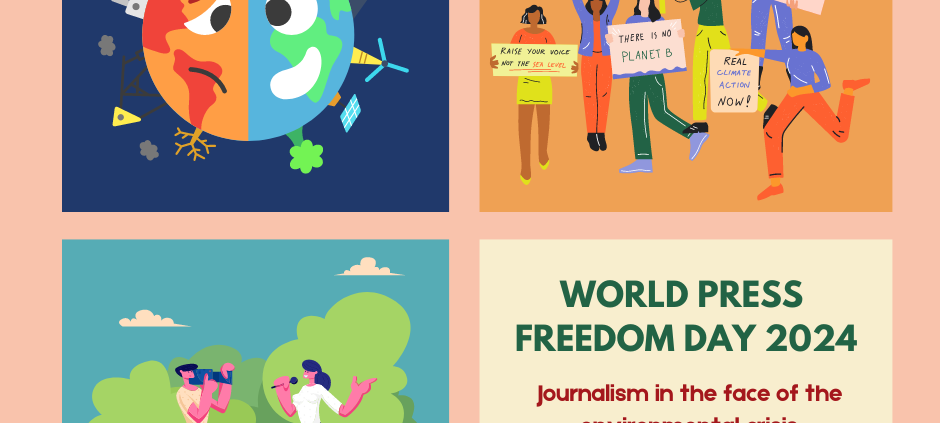A Press for the Planet
IAWRT Statement on #WorldPressFreedomDay 2024
To commemorate World Press Freedom Day, the International Association of Women in Radio and Television (IAWRT) would like to amplify the call for international environmental justice that goes hand in hand with freedom of expression. All across our environmentally precarious planet, we see that dictatorial regimes, as well as so-called democratic governments that restrict free speech, are the most severe violators of environmental norms for a sustainable future. Nations whose governments are involved in climate change denial, depletion of forests, reckless extraction of non-renewable natural resources, and persecution of those who uphold environmental sustainability are also the ones that clamp down on journalists and media practitioners, whether through overt or covert censorship. Even in the democratic nations of Europe, we see that peaceful citizen-led environmental activism is opposed by governments in power, so much so that in February 2024, Michel Forst, the UN Special Rapporteur on Environmental Defenders under the Aarhus Convention, observed the following:
“The repression that environmental activists who use peaceful civil disobedience are currently facing in Europe is a major threat to democracy and human rights. The environmental emergency that we are collectively facing, and that scientists have been documenting for decades, cannot be addressed if those raising the alarm and demanding action are criminalized for it. The only legitimate response to peaceful environmental activism and civil disobedience at this point is that the authorities, the media, and the public realize how essential it is for us all to listen to what environmental defenders have to say.”
Against this alarming backdrop of the unprecedented effects of climate change, pollution of our air, water and land, and biodiversity destruction, IAWRT calls on all journalists, press and media organizations to highlight these disastrous impacts and to hold states and corporations accountable for the environmental destruction that is pushing the planet beyond a point of no return.
According to Media Defence, “Reporting on the environment has become one of the most dangerous jobs in journalism. Over the past decade, at least 13 journalists investigating environmental issues have been killed as a direct result of their work. Countless others have suffered violence, harassment, intimidation and SLAPP lawsuits
IAWRT salutes the efforts of so many courageous journalists who, despite risks to their lives, continue to report on sensitive issues across the planet, such as war, environmental crimes, and persecution of citizens. May the struggles for a safer planet for all of us, which goes together with upholding press freedom, see positive results as individuals, organizations and networks work in solidarity for a sustainable future.
===
IAWRT is a global network with 14 country chapters and over 400 members in 54 countries.








